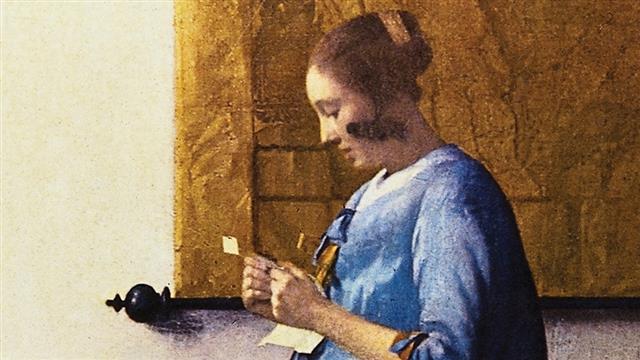11 September 2014
Dear K.,
I was so glad to receive your second letter, and thank you for giving me glimpses of how you were received at the VC's reception, inducted at induction courses, met new people at meetings and, what amounts to the same thing, lunches.
Of the above rites de passage, lunches are perhaps of first-order importance. Don't believe the 1987 film Wall Street when it says, 'Lunch is for wimps!' Wall Street may value lynching over lunching. But in this not-so-convenient part of the territory, a convenient truth is that a cordial and unhurried meal is the barometer, even guarantor, of collegiality.
I can feel your eagerness in starting in your new role, from your asking why I wrote in my last letter to the effect that it is discretion that defines an executive. Let me explain.
Discretion is often taken to be synonymous with care and caution, a desirable pause or hesitation in action or decision, leading sometimes to inaction and indecision. 'Restricted', 'stiff upper lip' and 'need-to-know basis' are among its many guises.
Though not semantically off the mark, it is not the entire story. To be discreet is also to be prudent, to know what is and is not appropriate and good under the circumstances, and act accordingly.
Its proactive side is captured very well in the proverb, attributable to Shakespeare, that Discretion is the better part of valour. Valour necessarily takes courage and strength. Discretion is not to withdraw, abstain or put one's head in the sand.
To exercise discretion is to find a solution not found in any statute book but most apposite under the circumstances. It is said that all bureau workers act in accordance with precedents, procedures and protocols. Well, following the three p's would make one an artisan. But knowing how to exercise discretion makes one an artist. Rules are rarely carved in stone. To apply them judiciously and expeditiously, even when there are no rules, distinguishes a real professional from a mere charlatan.
Can discretion be learned?
In 1902, a 19-year-old student named Franz Xaver Kappus wrote to Rainer Maria Rilke for advice on a literary career. The correspondence that ensued between the two resulted in Letters to a Young Poet. In his letters, Rilke advises the novice poet to look inward, 'to say what you see and feel and love and lose', and to embrace solitude for 'your solitude will expand and become a place where you can live in the twilight.'
Whereas Rilke prescribes solitude for Herr Kappus, I prescribe solicitude to you, that is, to look to others, to those you come across in your daily work—superiors, subordinates, students, academic staff of sundry disciplines and persuasions, fellow executives with different responsibilities and portfolios, other stakeholders…. Always have these interlocutors or addressees, or any combination of them, in mind, see what they see and feel and want and not want before you pick up the phone or pen a paper.
A word of caution, though. While no properly functioning citizen of the global village today can do without e-mails, this form of communication is in fact the least discreet. This is true even if you flag an e-mail as confidential. I have enough to say about e-mails to fill another letter. Suffice it to say that this freight train simply loads too fast, takes off too soon and in too many directions that it inevitably would run over some toes and knock things down.
But I should really stop here. Drawing comparison to Rilke's famous letters is already encroaching upon the biggest indiscretion. I wish you a flourishing start to a great career!
Yours sincerely,
H.


